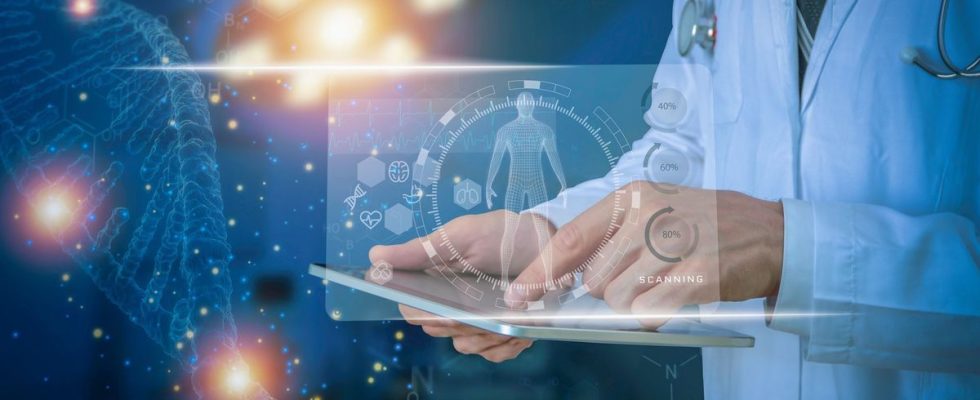Published on
Updated
Reading 2 mins.
Researchers have developed artificial intelligence software capable of quickly predicting the risk of serious health problems such as heart attack, stroke or dementia.
This new artificial intelligence tool can very quickly analyze bone densitometry examinations to predict the future risk of health problems such as heart attack, stroke, fall, fracture or even senile dementia. Concretely, the artificial intelligence is looking for signs of calcifications of the arterial wall (accumulation of calcium and phosphate clusters) in the abdominal aorta, a symptom that increases the risk of cardiovascular disease.
An interpretation similar to that of doctors in 80% of cases!
Abdominal aortic calcification is a type of calcification that affects the wall of the abdominal artery. It increases the risk of developing cardiovascular disease, falls, fractures and senile dementia. It can be diagnosed through a bone densitometry test. But only expert doctors in the field are able to analyze this kind of examination and it takes an average of 5 to 15 minutes to analyze a single image. Researchers at Edith Cowan University’s School of Science (Australia) have developed software that can analyze these exams much faster than a doctor with the analysis of 60,000 images in a single day.
A first version already very powerful
This artificial intelligence has been tested in real life since it has analyzed more than 5000 bone densitometry examinations. These examinations were also interpreted by expert doctors. After analyzing the results, the researchers found that their software succeeded in detecting abdominal aortic calcification (low, medium or high) in 80% of cases. Only 3% of patients received an incorrect diagnosis from artificial intelligence. They had been diagnosed with weak abdominal aortic calcification while suffering from heavy calcification. So a small mistake. The researchers are all the more proud of the effectiveness of their software as it is the first version. It can therefore be improved to be even more efficient. “We are still working to improve the efficiency of our software and achieve the same accuracy as a human interpretation. But these first results from version 1.0 of the algorithm are very promising and we have already managed to significantly improve its performance with more recent versions.”said Professor Joshua Lewis, co-author of the study published in the journal eBioMedicine.
This artificial intelligence could help in the early diagnosis of certain diseases and the rapid establishment of treatment.
